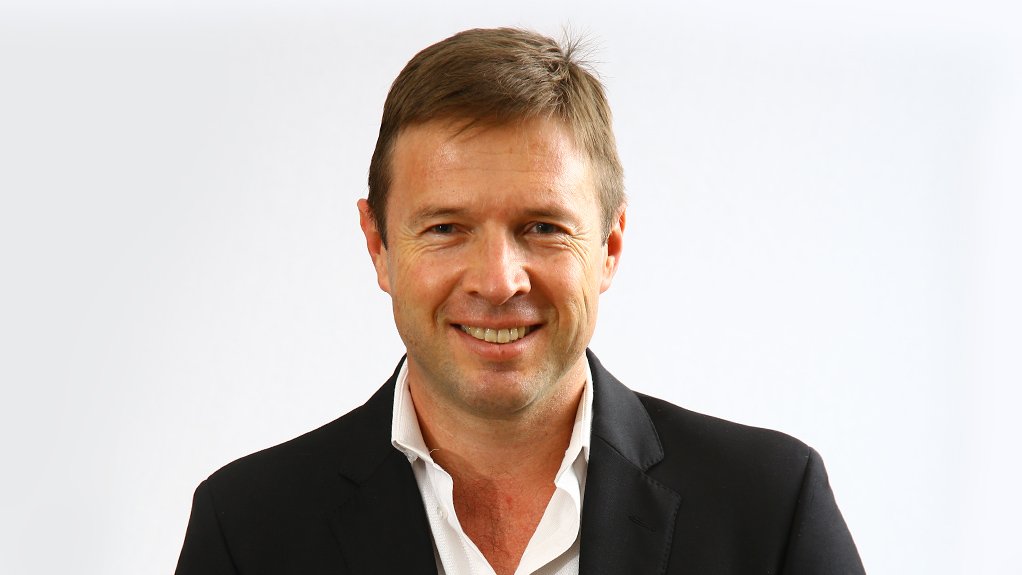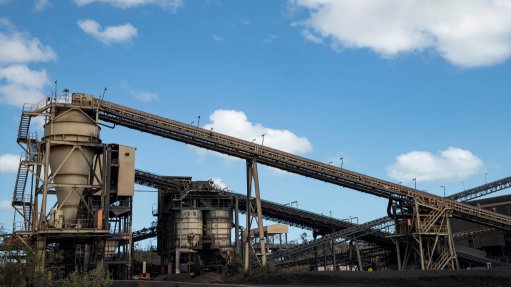Consultants equipped to support industry’s sustainability drive


ANDREW VAN ZYL While mitigation strategies aim to reduce the operation’s impact on global warming, there is growing risk to operations from various aspects of climate change
With a growing range of operational risks and pressures – from climate change vulnerability to cost inflation – South African mining companies are taking an increasingly integrated approach to sustainability.
With its multidisciplinary professional teams, global centres of excellence in niche areas and extensive network of consultants, consulting engineers and scientists SRK Consulting is well positioned to help miners achieve their sustainability targets.
“Combining our field experience with the power of digital technologies enables us to leverage value from Big Data in various applications,” states SRK Consulting South Africa MD Andrew van Zyl.
The local mining sector is a significant energy consumer, which has implications for the sector’s carbon footprint, given the prominence of coal-fired power generation in the country.
He adds that
efforts to increase the share of renewable energy used by local mining will free up current generation capacity and reduce loadshedding for citizens and other smaller businesses, he stresses.
Van Zyl highlights that decarbonisation also has the potential to increase demand for some of the minerals and metals produced in South Africa, creating business and employment opportunities.
“Embedded generation from renewable sources directly replaces mines’ Scope 2 emissions from State-owned power utility Eskom, so it is a relatively quick route to reducing the carbon footprint. The motivation for these initiatives, however, is as much operational as environmental. Renewable-energy generation projects are important in supporting continuity of operations, and improving productivity and cost-efficiency.”
He adds that miners’ emission targets also require them to achieve progress in terms of Scope 1 and Scope 3 emissions.
SRK’s experience in technical mining disciplines and strategic solutions will assist clients in identifying ‘reduction alternatives’ at existing mining operations, where energy consumption can be minimised.
SRK also assists clients in identifying ‘replacement alternatives’ where a renewable source of energy is applied to replace an existing carbon-intensive source.
By identifying the largest carbon emitters in an operation, a greenhouse-gas inventory can be developed, which ranks the business’s carbon emission sources in terms of significance.
“Among our services is helping clients develop the capability to report in detail on their Scope 1, 2 and 3 emissions. The emissions in each of these phases are often difficult to quantify, but mines are under pressure to identify and acknowledge these impacts in their reporting.”
Van Zyl adds that climate risk is a growing concern for miners as the focus broadens from climate change mitigation to adaptation.
“While mitigation strategies aim to reduce the operation’s impact on global warming, there is growing risk to operations from various aspects of climate change – from more variable and extreme rainfall patterns to rising ambient temperatures.”
Lastly, he stresses that institutional investors have long been favouring more responsible sectors and companies, and that the mining industry’s shift towards sustainability values will support its attractiveness.
Exploration Technology
Van Zyl enthuses that the scope for mineral exploration in South Africa remains significant and includes potential for minerals that are in high demand for battery applications, despite exploration remaining muted as investors favour investment destinations with greater transparency and efficiency.
“There are, however, still considerable prospects for exploration, even among known and mined deposits. Among the enabling factors is that exploration technology had opened doors to make better use of historical exploration data, with efficiency and cost benefits for prospectors and investors.”
Given the company’s expertise in exploration, SRK can contribute to the sector with its services that range from technical studies to exploration programme planning and execution.
Van Zyl highlights a management and valuation through absolute prospectivity (M-VAP) tool to assist companies in valuing, managing and forecasting their exploration – a recent innovation of sister company SRK Exploration Services (SRK ES).
This M-VAP tool replaces traditional relative prospectivity with a quantified absolute prospectivity, estimating
the probability of making a discovery of deposits of different magnitude in an area of interest.
“These probabilities can then be used in a decision tree model to assess if the estimated future value warrants exploration activity.”
SRK and SRK ES have been engaging with explorers in South Africa at various levels and continue to support exploration using a range of services, despite the challenges with South Africa’s cadastre system.
Van Zyl contends, however, that an effective cadastre system is a vital stepping stone for South Africa’s mineral, future, as it “will help stakeholders to make better and quicker investment decisions”.
It would also provide a “welcome boost for investor interest if supported by key factors such as reliable transport and energy infrastructure”, he concludes.
Comments
Press Office
Announcements
What's On
Subscribe to improve your user experience...
Option 1 (equivalent of R125 a month):
Receive a weekly copy of Creamer Media's Engineering News & Mining Weekly magazine
(print copy for those in South Africa and e-magazine for those outside of South Africa)
Receive daily email newsletters
Access to full search results
Access archive of magazine back copies
Access to Projects in Progress
Access to ONE Research Report of your choice in PDF format
Option 2 (equivalent of R375 a month):
All benefits from Option 1
PLUS
Access to Creamer Media's Research Channel Africa for ALL Research Reports, in PDF format, on various industrial and mining sectors
including Electricity; Water; Energy Transition; Hydrogen; Roads, Rail and Ports; Coal; Gold; Platinum; Battery Metals; etc.
Already a subscriber?
Forgotten your password?
Receive weekly copy of Creamer Media's Engineering News & Mining Weekly magazine (print copy for those in South Africa and e-magazine for those outside of South Africa)
➕
Recieve daily email newsletters
➕
Access to full search results
➕
Access archive of magazine back copies
➕
Access to Projects in Progress
➕
Access to ONE Research Report of your choice in PDF format
RESEARCH CHANNEL AFRICA
R4500 (equivalent of R375 a month)
SUBSCRIBEAll benefits from Option 1
➕
Access to Creamer Media's Research Channel Africa for ALL Research Reports on various industrial and mining sectors, in PDF format, including on:
Electricity
➕
Water
➕
Energy Transition
➕
Hydrogen
➕
Roads, Rail and Ports
➕
Coal
➕
Gold
➕
Platinum
➕
Battery Metals
➕
etc.
Receive all benefits from Option 1 or Option 2 delivered to numerous people at your company
➕
Multiple User names and Passwords for simultaneous log-ins
➕
Intranet integration access to all in your organisation


















